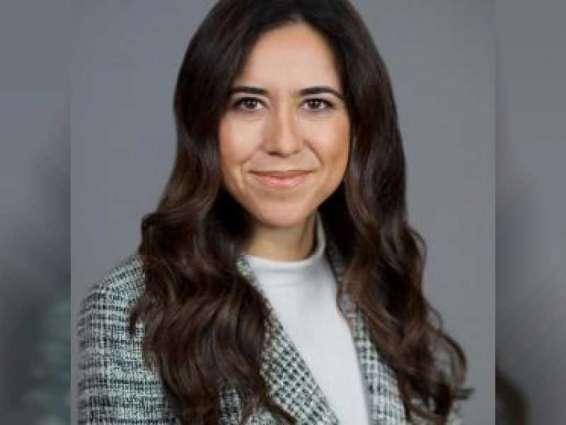NEW YORK, (Pakistan Point News - 16th Sep, 2018) Ambassador Lana Zaki Nusseibeh, UAE's Permanent Representative to the United Nations in New York, has reiterated and reinforced her country's commitment to a UN-led political process, notwithstanding the Houthis’ decision to disregard the Geneva talks organised by the Special Envoy of the Secretary-General for Yemen, Martin Griffiths.
In a letter addressed to President of the UN Security Council Nikki R. Haley with a copy to UN Secretary-General Antonio Guterres, Ambassador Nusseibeh said the Houthis’ "no-show" rebuke to the United Nations and to a meaningful political process is a serious setback and a significant disappointment for the Yemeni people and the Coalition, who are eager to find an end to the conflict.
"Unfortunately, this is only the latest Houthi broken promise to re-engage in a political process since they derailed the political transition process in 2014, turned to force, and triggered the humanitarian and political crisis Yemen faces today," she added.
Ambassador Lana Nusseibeh further stated, "The Coalition remains committed to supporting the efforts of the Special Envoy, and to a UN-led political solution, in accordance with relevant Security Council resolutions, the Initiative of the Gulf Cooperation Council and its implementation mechanism, and the outcomes of the National Dialogue Conference. The Coalition is ready to support new talks whenever the Special Envoy can ensure the Houthis’ meaningful participation. We hope he can achieve this soon.
"What is now clear is that any potential progress at the negotiating table depends on sustaining pressure on the Houthis. The progress in liberating most of the Red Sea coast from Houthi control has been instrumental in facilitating the work of the Special Envoy; having previously refused to engage with his predecessor for two years, the Houthis would not have engaged in discussions with the Special Envoy without the urgency of losing their access to the sea, along with the supply of weapons and funds that sustains them. Accordingly, while military action should be the last resort in the Coalition’s view, the liberation of Hodeidah is critical to reengaging the Houthis in peace talks. To that end, carefully calibrated and with a clear purpose toward restarting the political process, Yemeni Government forces backed by the Coalition have now intensified military operations against the Houthis in the Hodeidah area and on other fronts.
She went on to say, "The Security Council and international community also must press the Houthis. This should begin with immediate action to sever the Houthis’ supply of weapons, funding, and technical assistance being supplied by Iran in direct violation of Security Council Resolutions 2216 and 2231. Iran provides the Houthis some of the most sophisticated weaponry and know-how ever obtained by a non-state actor, including ballistic missiles, guided anti-ship missiles, and kamikaze aerial drones, along with hundreds of thousands of landmines and improvised explosive devices that are devastating Yemeni civilians across the country.
"Concurrently, it is critical for the international community to increase its pressure on the Houthis to commit to international humanitarian law. The Houthis’ use of human shields, destruction of vital civilian infrastructure, mortar attacks on hospitals and water and sanitation sites, indiscriminate use of mines, and firing of missiles at civilians in Saudi Arabia and oil tankers in the Red Sea must be condemned in unequivocal terms, or the muted response will be interpreted by the Houthis as tacit acceptance of these actions by the international community.
Ambassador Nusseibeh said, "Most critically, the Coalition understands that its commitment to the well-being of the Yemeni people, humanitarian principles, and international humanitarian law is more important than ever. The Coalition this year has contributed nearly $1.25 billion of unrestricted funds to the UN Humanitarian Response Plan so that Yemeni civilians, especially in Houthi-seized areas, can receive desperately needed assistance. As a result, the number of people receiving UN food aid, for instance, has more than doubled, primarily benefiting civilians under Houthi control. This is supplemented by direct bilateral assistance to liberated and government-controlled areas. We will be working closely with the United Nations to continue progress on the 2018 Humanitarian Response Plan and to ensure that the 2019 Humanitarian Response Plan will materially improve the humanitarian situation.
"Deconfliction is also a critical dimension of this support. The safety of civilians and humanitarian workers and protection of civilian infrastructure remain a priority of the Coalition. Civilian casualties, let alone those of children, are unacceptable. The Coalition is committed to investigating incidents and to ensure accountability by taking responsibility where appropriate and implementing corrective measures.
"In order to set the conditions for political engagement, and to address the humanitarian crisis, all parties to the conflict must see that meaningful participation in United Nations peace talks is the only viable way forward," she concluded.




